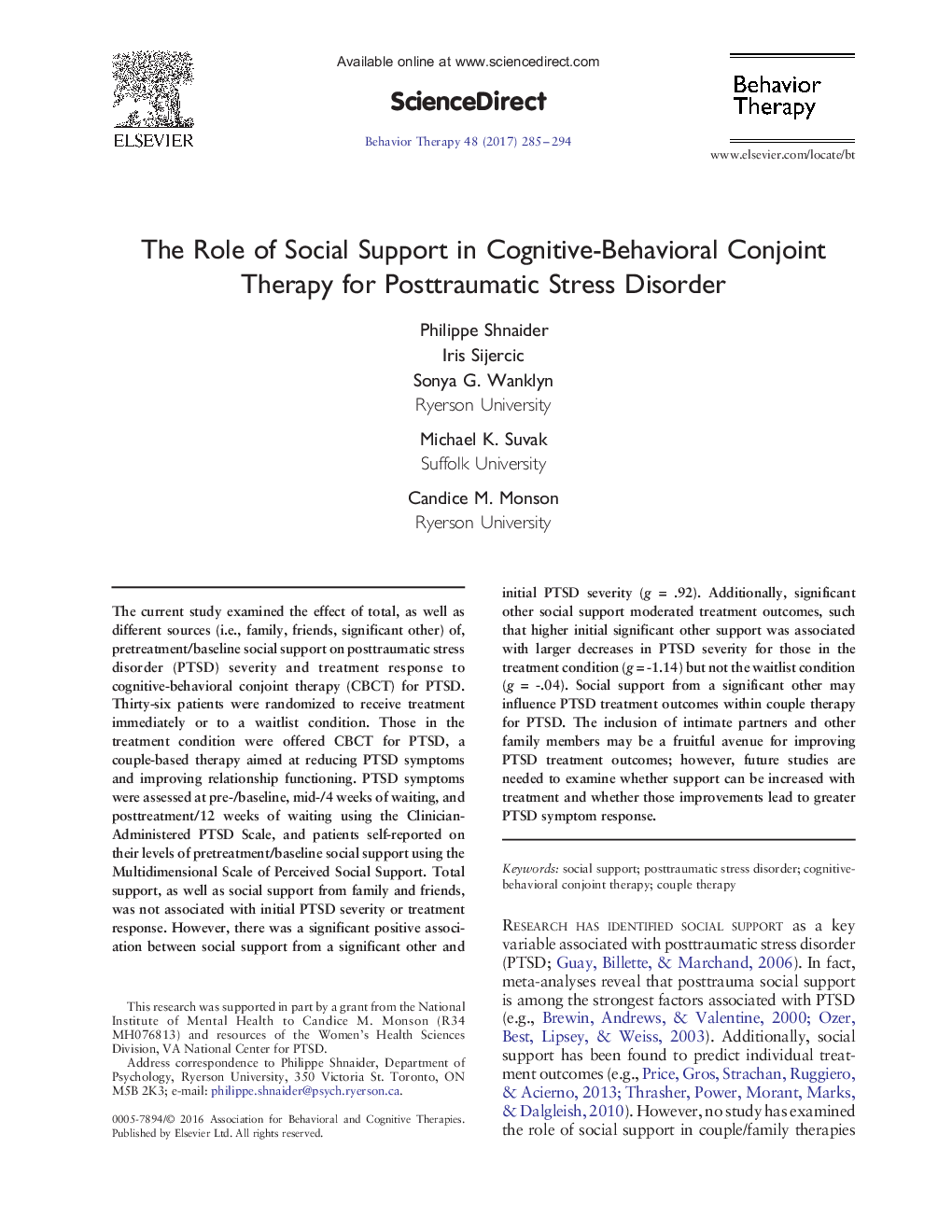| کد مقاله | کد نشریه | سال انتشار | مقاله انگلیسی | نسخه تمام متن |
|---|---|---|---|---|
| 5037982 | 1370242 | 2017 | 10 صفحه PDF | دانلود رایگان |

- The effect of social support on PTSD symptom response was examined within CBCT.
- Initial significant other social support moderated treatment outcome.
- Higher initial significant other support was associated with larger decreases in PTSD in the treatment condition but not the waitlist condition.
The current study examined the effect of total, as well as different sources (i.e., family, friends, significant other) of, pretreatment/baseline social support on posttraumatic stress disorder (PTSD) severity and treatment response to cognitive-behavioral conjoint therapy (CBCT) for PTSD. Thirty-six patients were randomized to receive treatment immediately or to a waitlist condition. Those in the treatment condition were offered CBCT for PTSD, a couple-based therapy aimed at reducing PTSD symptoms and improving relationship functioning. PTSD symptoms were assessed at pre-/baseline, mid-/4 weeks of waiting, and posttreatment/12 weeks of waiting using the Clinician-Administered PTSD Scale, and patients self-reported on their levels of pretreatment/baseline social support using the Multidimensional Scale of Perceived Social Support. Total support, as well as social support from family and friends, was not associated with initial PTSD severity or treatment response. However, there was a significant positive association between social support from a significant other and initial PTSD severity (g = .92). Additionally, significant other social support moderated treatment outcomes, such that higher initial significant other support was associated with larger decreases in PTSD severity for those in the treatment condition (g = -1.14) but not the waitlist condition (g = -.04). Social support from a significant other may influence PTSD treatment outcomes within couple therapy for PTSD. The inclusion of intimate partners and other family members may be a fruitful avenue for improving PTSD treatment outcomes; however, future studies are needed to examine whether support can be increased with treatment and whether those improvements lead to greater PTSD symptom response.
Journal: Behavior Therapy - Volume 48, Issue 3, May 2017, Pages 285-294